Three Focus Areas for Outstanding Appointment Setting
If you search for “appointment setting tips” on Google, you’ll receive approximately 3.5 million results! A variety of coaches, gurus, and experts have written pieces about how to enhance your appointment setting talents in 9 ways, 5 ways, 46 ways, and an endless number of ways. A quick check through some of these postings reveals that the advice is typically sound and relevant; yet, remembering 5+ suggestions on the go is practically impossible in our day of information overload. So, we propose that we condense all of these ideas into three important areas for appointment-setting success: people, timing, and tools.
Three Focus Areas for Outstanding Appointment Setting
People
People are, without a doubt, the most important component of every sales contact. However, we must consider all of the stakeholders and constituencies that may assist us in achieving excellence in appointment setting. Let’s take a closer look:
Managers:
Appointment setters should get sufficient training, as well as continual monitoring and mentorship from their management. Managers should be monitoring calls and completing quality assurance checks so that training opportunities may be identified.
Marketers:
Appointment setters and marketers both need to communicate. Marketers should provide lead information such as who downloaded the most recent e-book or other assets, who attended the most recent webinar, and who visited the website lately. All of this information may assist you in reaching out to the appropriate individuals at the right time with the correct message.
Referrals:
If your present clients adore you, now is the moment to capitalize on it. A reference from a customer or vendor partner may be priceless when it comes to securing an appointment with a desired client.
Prospects:
It’s critical that you don’t just “smile and dial” anyone. Townsend Wardlow, a sales consultant, advises appointment setters to aim high and broad in order to obtain more appointments.
Aiming high entails selecting the appropriate level of decision-making power for each call. Don’t be afraid to start with the C-suite. Working your way up to the decision-maker is rarely successful. Wardlow also cautions appointment-makers against being fixated on calling the “proper person.” In most B2B acquisitions, there will almost certainly be a committee of decision makers. It’s fine to keep your efforts wide during the prospecting phase. They may make it simpler for you to receive a call with the proper person even if you don’t call the right person the first time.
Timing:
It’s more than just arranging calls according to the recipients’ time zone when it comes to timing. It’s essentially a question of common sense when it comes to time. When it comes to accomplishing your goal, how can timing help you the most?
Speed-to-Inbound Lead:
When someone takes the time to fill out a website form for a sales call or demo, it’s likely that you aren’t the only firm they’ve contacted. Because the sale generally goes to the first firm to contact the lead, it’s critical that your speed-to-inbound lead contact is as quick as possible.
Cold Calling High-Level Decision Makers:
Have you thought of cold phoning executive prospects during their “off hours”? This method is recommended by The Rain Group, a sales training business. Why? The schedules of executives and gatekeepers are frequently incompatible. A gatekeeper most often works a regular 8–5 schedule. Often, the executive would arrive early or remain late. To avoid gatekeepers, call before 8:00 a.m. or after 5:00 p.m.
Time Zones:
While you may wish to contact executives during “off hours,” as noted above, you should avoid calling during “off the wall” hours. If you’re in the Eastern Time Zone and phoning California prospects at 8:00 a.m., you’re wasting your time. It may even be inconvenient if the decision maker’s office phone is diverted to their cell phone after hours
Trigger Events:
Astute salespeople use the internet to find new prospects and keep track of existing prospects’ online activities. However, simply listening is insufficient; you must also be able to recognize trigger events that will assist you in making a successful cold call. Learn that a potential customer has just purchased one of their competitors? That might be a compelling incentive to get in touch. If you schedule roofers in coastal locations, the start of storm season might be a trigger event. Look for indications indicating the ideal moment to contact out online or in trade magazines.
Tools:
CRM, email marketing platforms, auto dialers, phone scripts, and other technologies are all useful for appointment setters. Managing numerous solutions, on the other hand, seems to get in the way of the whole section on time, doesn’t it? The ideal option is to use a queue-based lead management system, which combines all of these features and allows you to make the most of communicating with individuals at the correct moment.
So, what is a lead management system based on a queue? To boost efficiency and contact quality, a queue-based lead management technology is designed to allow management to build a uniform, automated protocol that all appointment setters follow. A queue-based solution enforces the process and keeps your salespeople focused on the next great lead.
It contains the following important qualities that increase the possibility of moving a prospect through the sales funnel more quickly:
- Email marketing, one-to-one emailing, and email drip lead nurturing
- Progressive or preview auto dialing
- Logical branch call scripting
- scoring Queue
- Management dashboards and reporting
- Automated calendaring, multiple calendar management, team calendar management, closeness for appointment setting, and proximity for geography are all advanced calendaring features.
Conclusion:
Appointment setters may use these tips to be more productive, communicate better with prospects, and schedule more appointments. If you’re not already utilizing this, we recommend starting your free trial with Only-B2B and see how much of a difference it may make in your appointment making efforts.

)
)
)
)
